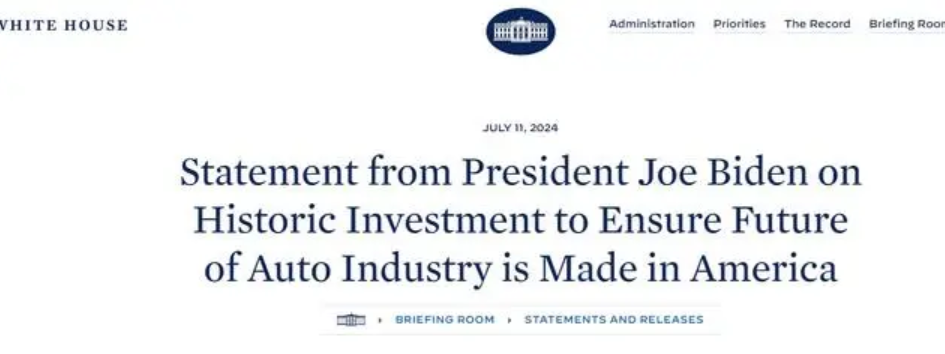Can $1.7 billion be allocated to boost the electric vehicle industry in eight U.S. states?
On Thursday, local time, the Biden administration announced that it would allocate $1.7 billion to help automakers complete factory renovations and expansions to boost the U.S. electric vehicle industry.
U.S. Energy Secretary Jennifer Granholm said at a press conference that the policy is a hallmark of the Biden administration's industrial strategy, which is designed to promote domestic manufacturing and attract or encourage companies to relocate their production lines back to the U.S., thereby creating jobs and promoting economic growth.

Nearly $2 billion will cover the presidential battleground states of Michigan, Pennsylvania, and Georgia, and expand to Ohio, Illinois, Indiana, Maryland, and Virginia, so it's part of Biden's campaign strategy. The White House is courting workers in key battleground states and trying to reassure autoworkers that electric cars won't cut jobs.
Biden noted that by investing in the clean energy economy, not only does it provide thousands of well-paying jobs for auto workers, but it also helps the auto industry upgrade technology and restart operations in existing plants and communities - a win-win situation.
According to the U.S. government, the projects have created about 2,900 new jobs and saved 15,000 jobs that would have otherwise been lost. Companies receiving grants include major automakers such as Fiat Chrysler, General Motors and Volvo, and also include a number of auto parts suppliers.
Harley-Davidson will receive $89 million to expand a plant in York, Pennsylvania, that makes electric motorcycles, and Volvo Group will receive $208 million to upgrade three plants that make Mack and other heavy-duty trucks.
 Sam Abuelsamid, an electric vehicle expert at market intelligence firm Guidehouse Insights, believes most of these plants are at risk of closing without an infusion of federal funding.
Sam Abuelsamid, an electric vehicle expert at market intelligence firm Guidehouse Insights, believes most of these plants are at risk of closing without an infusion of federal funding.




